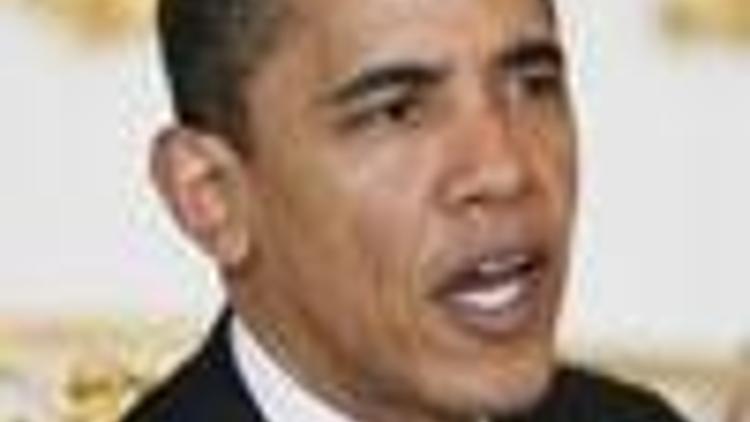US President Obama faces heavy workload in Turkey
Güncelleme Tarihi:

ANKARA -The talks between Turkey and the United States will surely define the new American administration’s overview of the Turkish government and its likelihood to cooperate during the regional difficulties ahead, according to diplomatic sources here.
For special coverage of Obama's Turkey visit
Both parties will list their priorities today and voice expectations. The Turkish authorities will surely talk about the continuation of the bilateral partnership on the eradication of the outlawed Kurdistan Workers’ Party, or PKK, based in northern Iraq. �
Turkey already expressed its satisfaction with the intelligence sharing mechanism that allows the Turkish military to conduct successful cross-border operations into northern Iraq. According to Turkish officials, Turkey will reiterate its satisfaction but will likely criticize the Iraqi-Kurdish authorities that ignore the existence of the PKK in their territory. In response, Obama may, perhaps, during his speech to Parliament, touch on the need to support military measures with those of political and socioeconomic ones.�
The second point Turkey will raise is the Cyprus problem. In fact, Secretary of State Hillary Clinton’s invitation to Turkish Cypriot President Mehmet Ali Talat to Washington late April was seen a very positive step but its cancelation due to Greek Cypriot and Greek government pressure was disappointing. Turkey will touch on the importance of the issue and will inform Obama on Turkey’s will for a comprehensive settlement. It would not be surprising for Ankara to ask for more support from Obama for Cypriot talks. Richard Holbrooke, a senior adviser of Obama, has been engaged with the problem since the late 90s but could not make any progress. Ankara will likely mention its desire to enter the EU. In the past, U.S. pressure for Turkey’s admission has not led to any improvements and has even been counter-productive.
One of the trickiest issues is the possibility of U.S. recognition of the Armenian mass-killings as genocide. Both Gül and Erdoğan may inform Obama about the talks with Armenia to normalize relations, possibly hinting that any move in the direction of recognizing the 1915 incidents as genocide would hurt the process. Obama is not expected to give any assurances on the issue but will likely encourage both parties to continue on the track.
All regional issues
As for the American part, a variety of issues ranging from Afghanistan-Pakistan to energy diplomacy, and from Iran to stronger transatlantic ties will be raised during talks. In Afghanistan, the United States has just introduced its new strategy to its allies in NATO, which demands more troops, logistics and humanitarian aid to the country. Turkey is not warm to the idea of sending more troops to the war-torn country and instead has suggested a political solution to the problem. Bringing the Taliban to the table is one of the conditions for reaching a solution, according to Ankara.
President Gül will update Obama on Turkey’s initiative to gather the presidents of Afghanistan and Pakistan together here last week. The second issue is Iran and its nuclear program. Obama will likely speak to his Turkish colleague about the U.S.’ intension to work with Turkey and will at the same time seek some support from Ankara. He is expected to advise Ankara not to engage in any initiative with Iran, and any energy deal or similar move should be postponed, according to Washington, an idea Turkey is not very positive on. Iran recently rejected any third-party mediation between Tehran and Washington, but for Americans, Turkey still can play a role of at least "messenger."
On Iraq, Gül’s recent visit was praised by the U.S. Though its results are not very promising, Turkey’s commitment to stand with Iraq on the way to normalization is applauded. In the Middle East, Turkey’s active diplomacy both to provide a peace deal between Syrian Israel, and a settlement to the Palestine and Israel deal was considered important by the U.S. Obama may ask Turkey to keep its attention to the region and to contribute to the solution. Turkey’s membership on the UN Security Council is seen good to this end.

